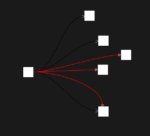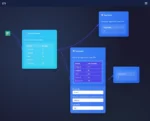The growing complexity and globalization of data have propelled language-aware approaches to the forefront of analytics and data strategy. Today, modern decision-makers must navigate linguistic nuances, cultural differences, and language-specific ordering mechanisms to truly harness their data’s value. If your organization handles multilingual datasets and international information systems, integrating custom collators isn’t just a luxury—it’s an essential strategic maneuver. By tactically leveraging customized collation processes, your data analytics become more accurate, insightful, and communicative across a broad audience. In this blog post, we’ll dive deep into custom collators: what they are, why they matter, and how implementing language-aware data processing provides a critical competitive edge in today’s rapidly evolving data-driven environment.
Understanding Collation: The Cornerstone of Accurate Data Ordering
Collation, at its core, defines how data points are sorted and compared. It sets rules for character sequences—ensuring data aligns across multiple sources and queries are returned consistently. In traditional systems, collation might be a simplistic alphabetical sort, defaulting solely to basic linguistic standards. However, with global-scale analytics becoming commonplace, standard collation methods quickly fall short when confronted with language-specific complexities. Different languages, scripts, and cultures come with varying sorting and comparison rules, including specific case sensitivities and accent handling.
Integrating language-aware collation is critical. For instance, Spanish languages have special sorting rules regarding “ñ,” which should follow after “n,” while German collation often needs to account for umlauts distinctly. Standard collation structures ignore these subtleties and could deliver skewed, inaccurate ordering results. Utilizing a custom collator—an algorithm precisely attuned by linguistic region, culture, or business cases—is essential. Such implementations guarantee data accuracy and trustworthiness, translating to insightful analytics.
Custom collators can be strategically aligned with broader enterprise data initiatives too. Companies adopting forward-looking architectures—like ZeroETL architectures for real-time analytics—benefit significantly when their real-time data pipelines are collated according to linguistic context and sorting precision.
The Strategic Importance of Custom Collators in Multilingual Data Environments
With increasing globalization, multilingual datasets become standard, not exceptions. Whether it’s international operations needing to harmonize financial data across multiple countries or customer-facing applications that must sort product catalogs in varied languages, maintaining language precision translates directly into business value.
Consider global databases accessed by thousands of users from multiple regions. Without proper language-aware collation or custom collators, queries might return incorrect orderings or mismatches, potentially misleading users or diminishing customer trust. Strategically integrating language-aware collators means establishing accurate query results consistently, fostering more confident analytical decisions.
In addition, effective multilingual collation significantly helps analytical and visualization tools provide actionable insights. Organizations relying on platforms such as Tableau Server or tools like Power BI can significantly enhance data usability and reliability by ensuring precisely sorted multilingual filters, tables, and visual displays. A data analyst preparing comparative regional dashboards benefits when the underlying data collation accurately reflects each language’s idiomatic sorting.
Developing and Implementing Custom Collators: Key Considerations
Choosing to implement custom collators isn’t just about adopting the latest technology—it’s about aligning technical precision with business objectives. To do so effectively, it helps to work alongside experts offering dedicated guidance, such as Dev3lop’s specialized API consulting services, who can work closely with your teams to architect innovative and precise data workflows.
When establishing custom collators, decision-makers must prioritize scalability, maintainability, and standard compliance. Effective collation systems should be capable of updating and evolving over time, accommodating shifting patterns in business data and usage practices. Furthermore, choose collation strategies compliant with international linguistic standards, such as the Unicode Collation Algorithm (UCA), allowing for broad global integration.
Because customized collation involves tuning complex sorting rules and linguistic patterns, maintaining clear observability into data processing becomes vital. Deploying holistic monitoring principles such as an observability mesh for data monitoring lets data engineering teams rapidly identify any anomaly in collation-related data processing workflows. Proactively tracking custom collations and linguistic-specific data ordering ensures uptime reliability and offers trust for stakeholders querying or visualizing multilingual datasets.
Enhancing Data Warehousing and Pattern Matching with Custom Collators
Many databases and analytics technologies depend critically upon accurate sorting and language-aware data management. Data warehousing solutions—whether traditional ETL or modern ELT paradigms—benefit dramatically when collations are calibrated language-by-language. For example, organizations transitioning toward more scalable and future-ready data solutions will naturally see advantages in approaches such as ELT, especially in the changing analytics landscape predicted for 2025. Accurate multilingual collation can improve the quality, accessibility, and accuracy of data transformations, reducing errors and enabling quicker insight generation.
Another compelling application of custom collators is pattern matching, an incredibly powerful tool commonly utilized in SQL. Effective pattern matching, leveraging custom collation, lets data analysts find nuanced insights hidden within multilingual datasets by accurately querying complex strings. Our in-depth breakdown of mastering pattern matching with the LIKE operator in SQL highlights the power of linguistic-aware collation, turning ordinary SQL queries into highly accurate analytical assets. Real-time dashboards that precisely interpret international strings rely on finely tuned collators, significantly streamlining productivity and insight clarity.
Avoiding Pitfalls: Common Mistakes Enterprises Make with Data Collation
As businesses grow beyond borders, inadequate attention to language-aware collation leads to practical errors and business inefficiencies. Among the top data mistakes found in startups, improper multilingual sorting stands out. Organizations may overlook linguistic nuances, ignoring collation issues until it generates user dissatisfaction or costly operational mistakes. Early neglect of collation workflows may result in time-intensive later-stage revisions, inaccurate analytics, and loss of trust among international stakeholders.
Moreover, organizations sometimes overly rely on default options provided by database or cloud providers, assuming standard settings handle comprehensive linguistic diversity adequately. Taking collation customization for granted often leaves linguistic anomalies unnoticed until they interfere with decision-making. For instance, data teams projecting analytical workloads into visualization endpoints via Direct Query versus Import in Power BI must explicitly ensure language-aware collation to correctly retrieve and visualize multilingual data—failure to do so could introduce inaccuracies affecting dashboards relied upon for critical business decisions.
Finally, not incorporating robust error-mitigation tactics—like proper strategies to resolve system anomalies promptly—can leave custom collation solutions vulnerable. Troubleshooting custom collation issues might require specialized solutions similar in principle to handling errors encountered when resetting a problematic Windows 10 PC via Safe Mode. Introducing consistent processes for identifying, diagnosing, and quickly remediating collation anomalies ensures ongoing production continuity and reliability.
Conclusion: The Future Is Language-Aware Data Analytics
In an increasingly connected world reliant upon clear data communication, thinking strategically about custom collation is no longer optional—it’s vital. Organizations need analytics that speak the language of their global audience clearly and accurately, whether on real-time platforms or historical analytical workloads.
Investing wisely into advanced collation solutions positions enterprises to capitalize on increasing data globalization and multilingual challenges. Shaping data collation processes today leads toward powerful analytics transformations tomorrow. At Dev3lop, we help organizations achieve innovation through applied data strategy, offering expert consulting and implementation insights, ensuring your organization always stays ahead through intelligent, language-aware data solutions.
Ready to optimize your multilingual data strategies? Contact our experts for an informed, strategic conversation today.

























